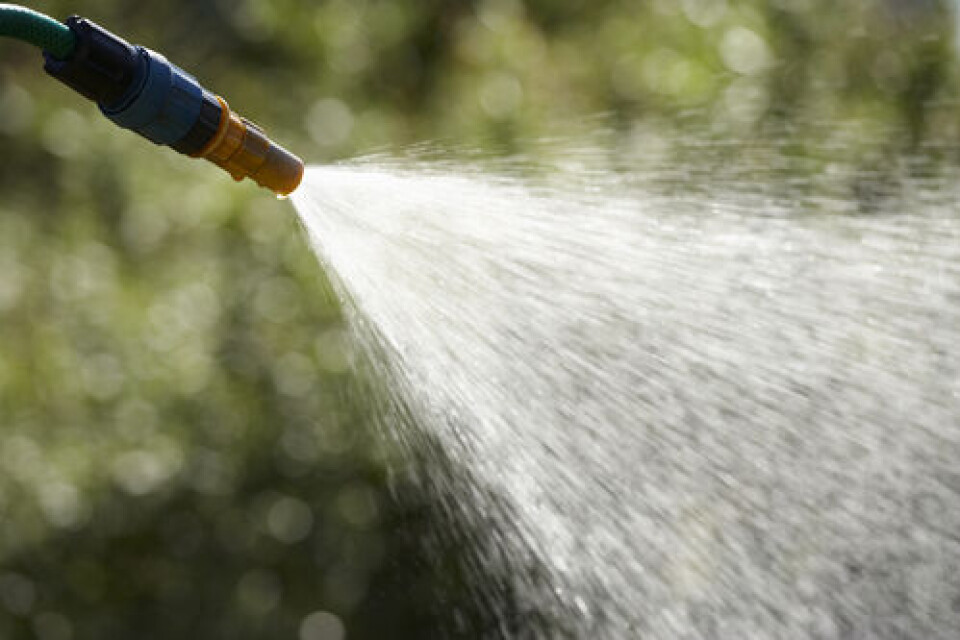-
EES: Airports and airlines call for immediate review ahead of summer traffic
Warnings of four-hour delays during peak season as industry leaders ask for extended suspension period
-
Ryanair brings back Brive-Stansted service for summer 2026
Route was one of several axed last winter
-
Red weather alerts continue as Storm Nils sweeps France
Driver killed in south-west after tree branch falls on his lorry
Bring in water restrictions from now, French prefects told
The ecology minister said he was ‘alarmed’ by the low water levels in the country. A new meeting with prefects is planned for March 6 for an update on the situation

Prefects have been asked to bring in water restrictions from now onwards in a bid to protect what have been described as “alarmingly low” water levels ahead of spring.
Ecology Minister Christophe Béchu called on prefects who have significant river basins in their areas to introduce the measures “from now on” to counteract the drought conditions that are affecting most of the country.
He said he had invited them to not hesitate or be afraid to bring in decrees to limit water use during an interview with AFP.
The minister announced the need for restrictions around the country last week. Restrictions often include a ban on car washing, watering gardens and filling swimming pools between certain hours and are set at local level. Farmers in particular are said to be concerned about any restrictions that may be imposed on them.
Mr Béchu said: “Last summer, we had 700 communes that were affected by problems with drinking water. If we don’t take measures in advance, we risk seeing an even higher level this summer, and over a much wider area.”
Read more: Water restrictions set to launch as France faces chronic lack of rain
The minister and the key river basin prefects held a meeting on Monday evening (February 27) to discuss the unprecedented winter drought and avoid a crisis situation come summer.
Unprecedented drought
France has been suffering from unprecedented levels of drought over the past few weeks, which has exacerbated the situation after a historically dry 2022. Over the past 18 months, a deficit has been recorded for 15 of them.
France has not seen significant rainfall between January 21 and February 21. The daily, cumulative amount is less than 1mm over 32 days — the longest period recorded at this time since the start of records in 1959.
The country has also seen a lack of snow, which is expected to have an effect on water reservoirs after the snow has melted.
The coming of spring will not improve the situation. “From the second half of April, the rain that falls does not recharge the groundwater as much,” said Mr Béchu. This is because more vegetation grows in spring, which takes in the water, so not as much falls on the ground itself.
The minister said: “I’ve had no difficulty in explaining to the prefects why we need to be alarmed. Occitanie, Auvergne-Rhone-Alpes, and the southern region…the level of humidity in the earth is the same as that normally seen at the end of May.
“The time that I’ve just spent with prefects confirmed the gravity of the situation. For 15 months, the rain deficit has got worse, so that in the month of February we have a deficit that will be 80-85% less rain than the average. Not a single department is experiencing normal levels.”
Most departments are currently seeing humidity levels well below the norm. As of February 28, five departments are already on heightened alert: Ain, Isère, Bouches-du-Rhône, Pyrénées-Orientales and Var.
The department of Savoie is also on vigilance alert.
5 départements (Ain, Isère, Var, Bouches-du-Rhône & Pyrénées-Orientales) sont désormais en alerte renforcée #sécheresse, et le ministre de la Transition écologique demande aux préfets coordinateurs de prendre des arrêtés de restriction "dès maintenant".https://t.co/oWFcNQqnlr pic.twitter.com/5JTFZ66ylr
— Nicolas Berrod (@nicolasberrod) February 27, 2023
The minister is set to meet prefects again on March 6 to check the progress on these restrictions. He is also set to hold a meeting at the end of March with a number of interested parties, including local councillors, farmers, manufacturers, and campaign associations.
It comes after President Emmanuel Macron made similar comments on February 25, during a visit to the Salon de l’Agriculture in Paris. He said: “We know that we’ll have problems with water being in short supply so rather than organising under the constraints of the ‘last minute’, with conflicts over usage, let’s plan it all out [now].”
In January, environmental experts already warned that the country was facing a ‘very dry year’ in 2023 after high temperatures and low rainfall in 2022.
Earlier this month, forecasters said that March would be ‘make or break’ for the country.
To see more about current water restrictions in France, visit the official government website. You can also check water shortages in your area on the website Propluvia.
Related articles
Why the month of March will be decisive for droughts in France
Drought measures, fuel prices, FIFA awards: The week ahead in France
Drought in France: 2023 set to be ‘very dry year’ and it starts now
























